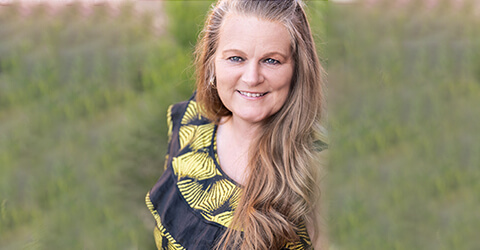Ahead of the upcoming Invest in Africa Summit 2022 taking place July 1-2 in Amsterdam, the Netherlands, Dr. Deanne De Vries, international best selling author and keynote speaker, highlights the ABCs of why now is the time to invest in and trade with Africa based on her 30 years of experience working and living across the continent.
We’ve all seen the headlines over the past decades that describe Africa as the hopeless, hopeful, rising, dark, fastest growing, emerging continent.
What are these headlines based on? Is the continent of Africa really like a roller coaster…falling one decade, hopeful for a short spell, then rising before turning upside down and heading back down?
How would you complete this sentence: Africa the _____ continent.
For me, Africa is AfriCAN, the ‘can do’ continent. For the past 30 years, I’ve had a front row seat participating in the growth of my own company and those I’ve worked for, as well as advising entrepreneurs, and local and international companies on their growth across Africa and its 55 countries.
Too often, people and companies jump into Africa with only an idea, product, or service and money to spend. This type of mindset explains why so many companies either fail to get off the ground at all or succeed in launching but are unable to reach their goals.
Africa has always been a vibrant continent full of diversity and opportunity for those who have an appetite for it, build the bandwidth and invest capital in social, cultural and economic infrastructure.
This is why the strategic approach—what I call the A, B and C of Appetite, Bandwidth and Capital—is so powerful.
“A” is for Appetite, which is the long-term mindset or DNA required to invest and operate in Africa. I love tapping into the wisdom of proverbs from around Africa. One of my favorites is from the Amharic in Ethiopia that says, “There are no better witnesses than your own eyes.” And by that I mean seeing more than just the road from the airport to the hotel to your meetings.
To really know and understand the investment and trade opportunities in Africa, you need to go to the malls, open-air markets and corner kiosks and observe how people shop, what factors into their purchase decision. You need to drive the road to the area where you are investing in a power plant or setting up a supply chain to deliver goods.
The right appetite eschews the junk food of outdated notions and prefers to feed on facts that are built a well-rounded, personal understanding of the reality on the ground today. It is learning to know and appreciate the different contexts, being able to distinguish between real and perceived risks, and identifying accurate market intelligence.
With this new, realistic perspective some companies may decide Africa is not for them and that’s okay. Other companies, however, will gain an even greater hunger for doing business in Africa, and move onto “B”.
“B” is for Bandwidth.
Bandwidth is the willingness to build capacity on the ground, often before you even start operations, because, as the Nuer proverb goes, “Better you say what you know in person than what you’ve heard people say.”
Bandwidth shows the readiness and willingness of a company to give their Africa-focused teams the resources to build the relationships and learn how culture, history, trade lanes and geography influence business in order to identify the best type of market entry and business setup. Depending on your industry, building this bandwidth could take months or even years of meetings, travel, conferences, data collection, proposals, even moving and hiring staff there before a company is ready to set up and start operating a successful, sustainable business in Africa.
The work is well worth it because with the foresight of appetite and bandwidth, you are well prepared for “C”.
“C” is for Capital.
Many companies have spent a lot of money in Africa without much to show for it. Why? Because Capital without the foresight of appetite and bandwidth is normally miscalculated and misallocated. As the Kikuyu proverb points out, “having rain clouds is not the same as having rain.” Money does not guarantee success in Africa. Investing capital in Africa is necessary, though not always in the ways we assume or in the ways we invest elsewhere. Successful companies invest in social, cultural, and economic capital.
Social capital are the investments in the networks and relationships on the ground, with local partners, companies and the government that help you build strong networks that increase your resiliency for the ups and downs that always come with entering new markets. Cultural capital is investing in people, values, experiences, and knowledge; extending opportunities and access to the tools, software, training for them to learn and grow. Economic capital is investing in infrastructure; hard, soft and digital.
Africa is open for business—for your business. However, there are no shortcuts, no get-rich-quick when it comes to setting up, operating or growing a business in Africa.
Taking the time to understand the ABCs and putting them in place, in that order, ensures that if you have the appetite and the bandwidth within your organization for Africa, you will correctly allocate your capital and achieve the desired return on investment.
About The Author
In boardrooms and on stages around the globe, Dr. Deanne De Vries, who has spent much of the past thirty years working and living across Africa, has been changing companies’ and audiences’ mindset about doing business in Africa by challenging outdated images and introducing them to AfriCAN: the can-do Continent. Connect with her at www.drdeannedevries.com and find her book, “Africa: Open for Business” on Amazon to discover more about why now is the time to invest in Africa.







